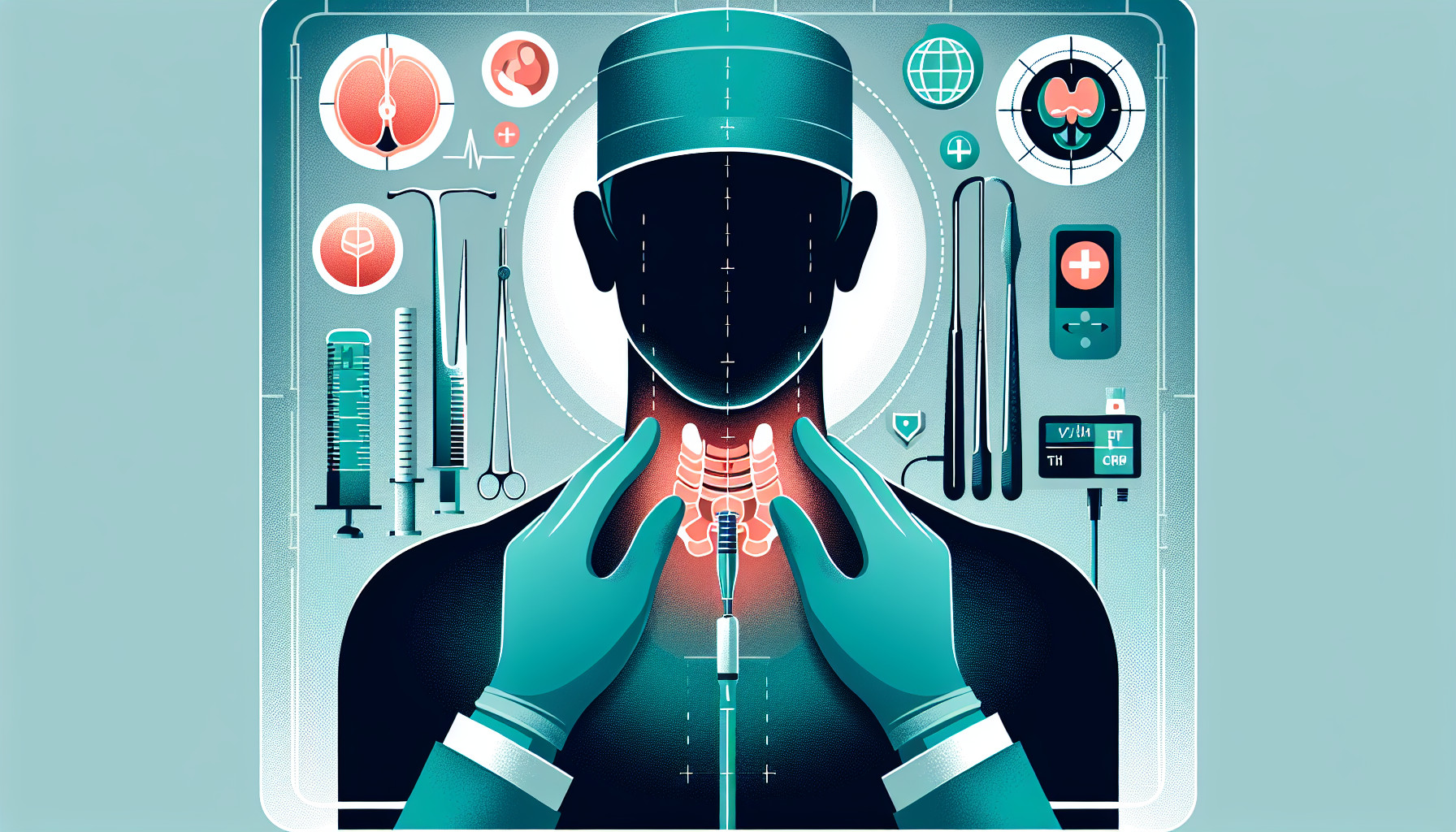Our Summary
This research paper focuses on a rare condition in pregnant women called hypercalcemic disorders, usually caused by primary hyperparathyroidism. This condition, which involves high calcium levels in the blood, can be hard to detect because its symptoms can be hidden by the normal changes a woman’s body goes through during pregnancy. Moreover, the standard tests done during pregnancy do not include checking for calcium levels in the blood. Hence, the condition might not be diagnosed until the pregnancy is at full term or even after delivery.
The research emphasizes that it’s crucial to identify this condition promptly and take suitable actions to avoid complications for the mother and baby. If the hypercalcemia is mild, conservative methods can be used. However, if it’s severe and doesn’t improve with conservative measures, the main treatment is parathyroidectomy - a surgical procedure to remove the parathyroid glands.
FAQs
- What is the main treatment for primary hyperparathyroidism with significant hypercalcemia not responding to conservative measures?
- Why might a diagnosis of hypercalcemia be delayed in pregnant women?
- What are the potential complications if hypercalcemia in pregnant women is not timely recognized and appropriately treated?
Doctor’s Tip
One helpful tip a doctor might tell a patient about parathyroidectomy is to follow post-operative care instructions carefully, including taking prescribed medications, attending follow-up appointments, and monitoring calcium levels as directed. It is important to report any unusual symptoms or complications to your healthcare provider promptly. Additionally, maintaining a healthy lifestyle with regular exercise and a balanced diet can support recovery and overall well-being after surgery.
Suitable For
Patients who are typically recommended for parathyroidectomy include those with primary hyperparathyroidism with significant hypercalcemia that does not respond to conservative measures. This may include pregnant women with hypercalcemic disorders, as timely recognition and appropriate interventions are essential to decrease maternal and fetal complications. In cases of mild hypercalcemia, conservative measures may be appropriate, but parathyroidectomy remains the mainstay of treatment for more severe cases of hypercalcemia due to primary hyperparathyroidism.
Timeline
Before Parathyroidectomy:
- Patient may experience symptoms of hypercalcemia such as fatigue, weakness, nausea, vomiting, constipation, and bone pain.
- Blood tests reveal elevated levels of calcium and parathyroid hormone (PTH).
- Imaging studies such as ultrasound, CT scan, or sestamibi scan may be performed to locate the abnormal parathyroid gland.
- Conservative measures such as hydration, diuretics, and medications to lower calcium levels may be attempted to manage symptoms.
After Parathyroidectomy:
- Surgery is performed to remove the abnormal parathyroid gland responsible for the hypercalcemia.
- Calcium and PTH levels are monitored postoperatively to ensure they are within normal range.
- Patient may experience temporary hypocalcemia (low calcium levels) following surgery, which may be managed with calcium and vitamin D supplementation.
- Symptoms of hypercalcemia improve or resolve after successful parathyroidectomy.
- Long-term follow-up is necessary to monitor calcium levels and ensure there is no recurrence of hypercalcemia.
What to Ask Your Doctor
- What are the benefits of having a parathyroidectomy for my condition?
- What are the potential risks and complications associated with the surgery?
- What is the success rate of parathyroidectomy in treating primary hyperparathyroidism?
- How long is the recovery period after the surgery?
- Will I need to take any medications or make lifestyle changes after the surgery?
- How will the surgery affect my calcium levels and overall health in the long term?
- Are there any alternative treatments to consider instead of or in addition to parathyroidectomy?
- How often will I need follow-up appointments after the surgery?
- What should I do if I experience any complications or symptoms after the surgery?
- Are there any specific dietary or activity restrictions I should follow before or after the surgery?
Reference
Authors: Dandurand K, Ali DS, Khan AA. Journal: Endocrinol Metab Clin North Am. 2021 Dec;50(4):753-768. doi: 10.1016/j.ecl.2021.07.009. PMID: 34774246
